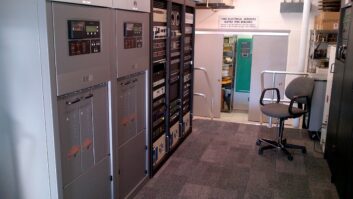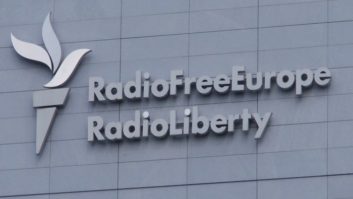
On March 26, Radio Capital de l’Empordà, a small non-profit station based in Pals, Spain, aired a special program, “Govorit Radio Svoboda” (“Radio Liberty Speaks”) and organized a photo exhibition to pay tribute to Radio Liberty and its transmitting station at Platja de Pals, which was demolished on the same day 10 years earlier.
Radio Liberty was launched in 1955 in Platja de Pals, near Costa Brava in Girona, Spain, with the mission of “delivering a me

ssage of hope to communist nations.”
According to Miquel Curanta, general manager of Radio Capital de l’Empordà, one of the principle reasons Radio Liberty was established in Platja de Pals was because of the location’s latitude and longitude (41º 59’ North and 3º 12’ East).
“The station’s 540-foot towers and antenna curtains situated at the edge of the sea provided an ideal launching site for shortwave signals,” he said. “The open area and the water meant the signals only bounced off the ionosphere once before reaching the former USSR and other Iron Curtain countries with practically no attenuation.”

Curanta explains that Radio Liberty created many local jobs and meant a lot to the people of the small town of Pals. It also proved to be a source of intrigue since what Radio Liberty did was “almost a secret,” thus creating curiosity among residents, who, not knowing exactly w

hat Radio Liberty was, “thought that missiles or nuclear submarines were hidden there.”
Radio Liberty was closed when the Spanish government destroyed the antennas. Looting of the electronic equipment followed. Since then the area of Pals beach, which is now a protected nature reserve, has been vandalized and only an empty structure that housed Radio Liberty remains.
Radio Capital de l’Empordà wanted to commemorate this chapter in history by educating younger generations on the Cold War and the role that the Pals transmitter played in it.
— Marguerite Clark







